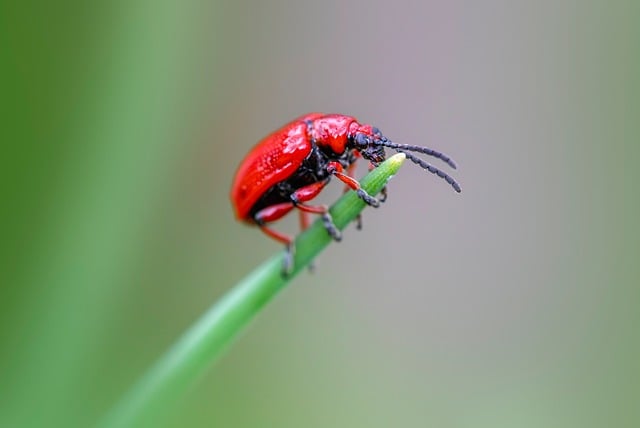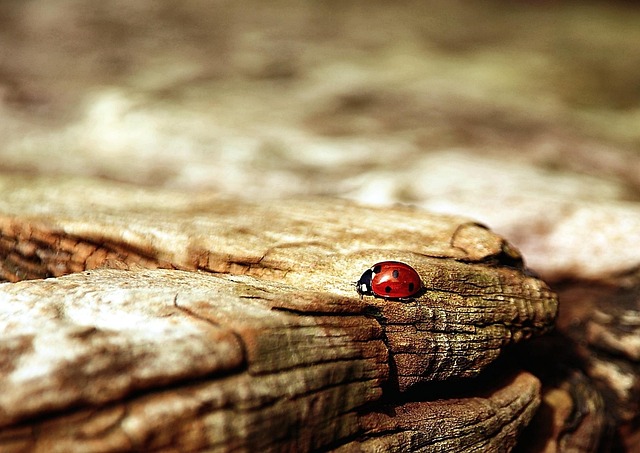Bed bugs, attracted to warm-blooded creatures, cause nuisance in various settings. In Littleton, organic pest control for home gardens is gaining popularity as a safer alternative to traditional pesticides, focusing on using natural products and strategies to maintain bug-free environments by targeting specific pests while promoting overall garden health. Homeowners are increasingly opting for this approach due to its long-lasting results and minimal harm to non-target organisms, preserving the balance of beneficial insects and soil microorganisms. Effective methods include companion planting with repellent plants, regular cleaning, vacuuming, sealing cracks, and using essential oil sprays made from peppermint, neem, or clove oils.
In the quest for a peaceful and healthy home, addressing bed bug infestations in Littleton is paramount. These tiny invaders can cause significant discomfort and stress. Thankfully, organic pest control offers a safer and more environmentally friendly alternative to traditional methods. This comprehensive guide explores effective strategies, focusing on understanding bed bugs, leveraging the benefits of organic solutions, and providing step-by-step instructions for successful implementation tailored to home gardens in Littleton.
- Understanding Bed Bugs and Their Impact on Home Gardens in Littleton
- Benefits of Organic Pest Control for Effective and Safe Extermination
- Practical Steps to Implement Organic Pest Control for Bed Bug Management
Understanding Bed Bugs and Their Impact on Home Gardens in Littleton

Bed bugs are tiny, flat insects that belong to the insect family Cimex. Despite their name, they don’t exclusively feed on beds; they’re attracted to warm-blooded animals and can be found in various environments, including homes, schools, offices, and public transportation. In Littleton, like many cities, organic pest control for home gardens has become increasingly popular as a safer alternative to traditional pesticides.
These insects have a significant impact on home gardens due to their insatiable appetite for blood. They can survive for months without feeding but will quickly multiply in areas with human or animal activity. In gardens, bed bugs may target birds, small mammals, and even pets. Their presence not only disrupts the garden’s ecosystem but also poses health risks, causing itchy bites on humans. Organic control methods focus on eliminating these pests using natural products and strategies to maintain a healthy, bug-free environment in Littleton homes and gardens.
Benefits of Organic Pest Control for Effective and Safe Extermination

When it comes to bed bug extermination, many homeowners in Littleton are turning to organic pest control methods as a safer and more effective alternative. Unlike traditional chemical treatments, organic solutions focus on using natural compounds and environmentally friendly techniques to eliminate pests, ensuring minimal harm to non-target organisms and the overall ecosystem. This is particularly beneficial for home gardens, where chemical pesticides can disrupt the delicate balance of beneficial insects and soil microorganisms.
Organic pest control offers several advantages. It targets specific pests while promoting a healthy garden environment, reducing the risk of environmental contamination. Moreover, it provides long-lasting results by addressing the underlying causes of pest infestations. By understanding the natural behaviors and life cycles of pests, organic methods can disrupt their breeding patterns and food sources, making them highly effective for bed bug extermination in Littleton home gardens without resorting to harsh chemicals.
Practical Steps to Implement Organic Pest Control for Bed Bug Management

Implementing organic pest control is an effective and eco-friendly approach to managing bed bugs in your Littleton home garden. Start by identifying the specific pests infesting your space; different organic solutions target various insects. Next, cultivate a diverse garden ecosystem; beneficial insects like ladybugs and lacewings naturally prey on bed bugs and their eggs. Incorporate companion planting techniques, where certain plants repel bed bugs due to their strong scents. For instance, lavender, mint, and marigolds are known deterrents.
Regularly clean and vacuum your space to remove bed bug hiding spots and cast off skins. Seal cracks and crevices in furniture and walls to limit access points for these pests. Organic pest control treatments include essential oil sprays made from peppermint, neem, or clove oils, which disrupt bed bugs’ nervous systems. These natural remedies can be applied directly to infested areas, following manufacturer instructions for safety and effectiveness.
In conclusion, organic pest control offers a safe and effective solution for bed bug extermination in home gardens across Littleton. By understanding the impact of these pests and implementing practical steps towards natural management, residents can reclaim their outdoor spaces without resorting to harsh chemicals. Embracing organic methods not only benefits the local ecosystem but also ensures a healthier environment for both humans and pets. For those seeking sustainable pest control solutions, organic techniques are a powerful tool to keep bed bugs at bay and promote thriving home gardens.
